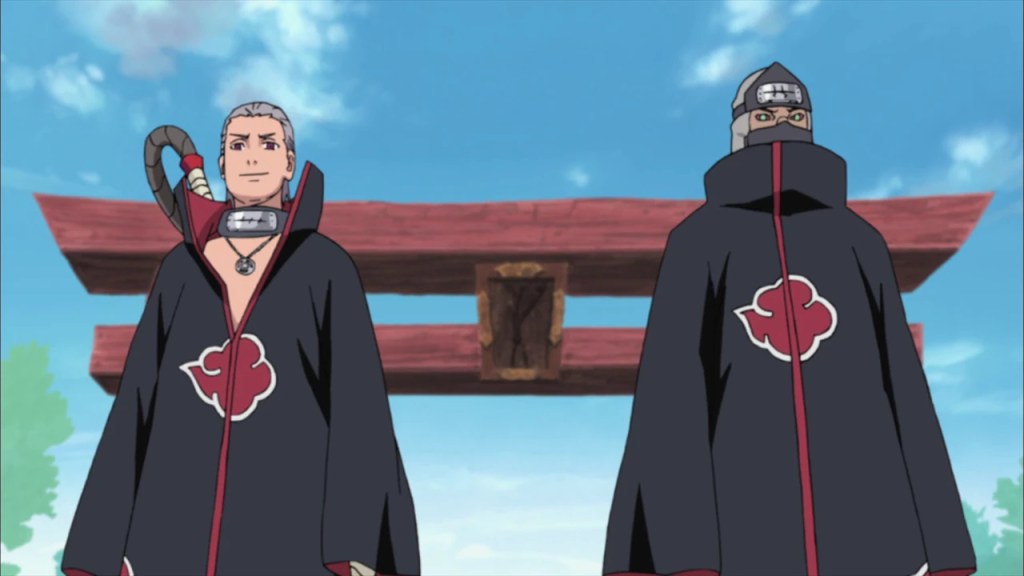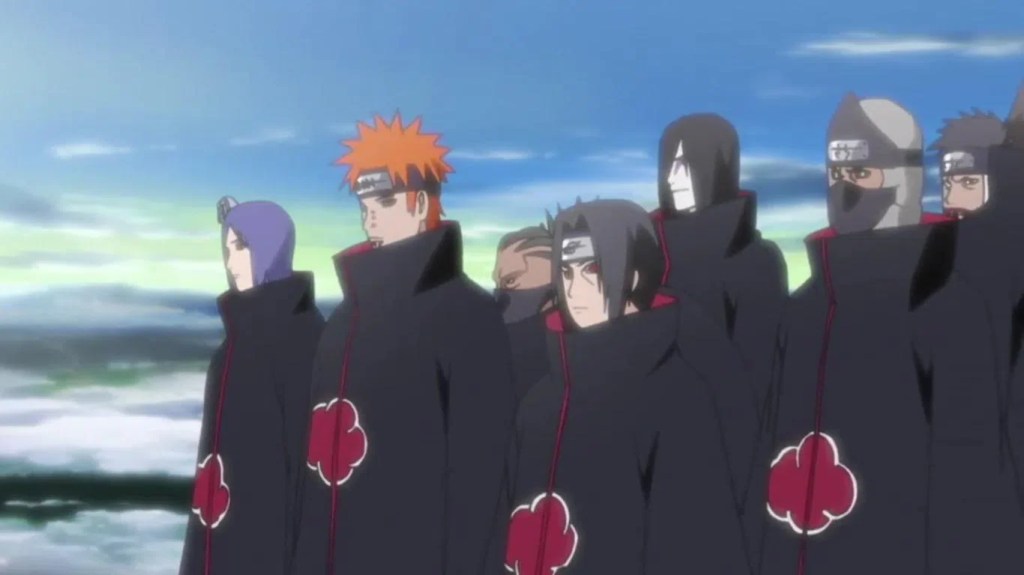
Naruto‘s Akatsuki have become iconic villains in the anime world, not to mention one of Naruto‘s emblems―and a lot of that fame comes down to them having a point. In Naruto‘s world of rigid hierarchies and constant wars, Akatsuki are the only real challengers from the exterior: outsiders of the shinobi system whose goals depend on the exact era.
To be clear, nobody expects Naruto‘s world to be perfect. Part of the reason Akatsuki is so compelling is exactly because Kishimoto is so graceful in his depiction of the realities of real-world problems like war and ostracism. For one reason or another, every last member of Akatsuki has a reason for railing against the dominant political order in Naruto‘s world, and as a group, and as a whole, they point out major problems with the way shinobi society is.

Akatsuki’s Origins in Warring Nations
After all, Akatsuki themselves originated from fallout and ashes. Amegakure is a minor village that, prior to Akatsuki’s founding, was made a proxy battlefield between major villages and consequently ravaged by destruction. After Jiraiya left war orphans Konan, Nagato, and Yahiko behind, the trio found themselves without any sort of exterior support or protection. Akatsuki naturally developed as a way to protect themselves.
Akatsuki’s later radicalization can be directly attributed to exterior intervention, too, when Yahiko dies ultimately only in a play by Danzo to safeguard Konoha’s own interests. The remaining Akatsuki members recognized themselves not so much as pawns to be sacrificed but coins to be freely exchanged as greater powers than their war-torn village saw fit. Akatsuki was formed from the rubble that the broader social order systematically generated in order to preserve itself and its interests. The conditions and power differentials that created Akatsuki are a necessary part of the equation that lends villages like Konoha so much relative power.

Akatsuki Is the Funhouse Mirror of Shinobi Society
There’s one thing particularly easy to forget, which is that Naruto doesn’t necessarily have real-world morality, simply because they’re different worlds. For example, Western moral norms, heavily colored by Christianity and the Greco-Roman ethical tradition, don’t inherently apply in Naruto‘s world where neither Christianity, Greece, nor Rome exist conceptually. Regardless of if you believe an objective real-world morality exists, in Naruto, only Naruto‘s morality exists.
Naruto‘s morality is overwhelmingly defined by the norms of the Five Great Nations and the shinobi order, and unlike the real world where we tend to offer some leeway to those who transgress (minor) moral norms, Naruto‘s social order can be extremely vicious in the enforcement of norms―to the point it wouldn’t be inappropriate to call it authoritarian.
For example, defecting from an established village can be grounds to be hunted down, even if one doesn’t present an active threat. (It’s no coincidence that most of Naruto‘s villains are missing-nin, either.) Murder is acceptable if it’s state-sanctioned, as are covert operations―unless they violate some ethical line, like Onoki’s hiring of Akatsuki. What matters above all in Naruto‘s morality is whether or not the state validates an action.
In this way, Akatsuki acts as a counterpoint to the dominant morality reacting to its authoritarian norms. They join Akatsuki because their rejection of norms pushes them to the outside of dominant morality in the first place; at the same time, like a child repeating a curse word uttered by their parents, they’re only doing something wrong by repeating what they shouldn’t.
Consider two less defensible Akatsuki members: Kakuzu, who only cares for money, only mirrors state-sanctioned shinobi forces who themselves carry out missions for profit; and Deidara, who finds an artistic expression in destruction, mirrors a society that’s more than happy to level villages like Amegakure in the name of the creative activity of nation-building. Even Hidan, who slaughters out of religious devotion, only mirrors the countless shinobi who slaughter in the name of a less holy ideal.
[RELATED: 10 Best Villains in Naruto]

Akatsuki Became a Catch-All Net for Outsiders
At its root, because Akatsuki exists as the only real outside opposition to Konoha, it becomes a catch-all for anybody who wishes to resist the shinobi order. Whether those motivations are arguably noble, as in the case of Nagato and Konan, or bizarre and impossible to defend, like Deidara’s insistence on explosions as an art form, Akatsuki is all you have if you want things to be different.
After all, we can’t forget what happened to Madara and the Uchiha when they just wanted to separate from Konoha when they still faced widespread discrimination. When we talk about the Five Great Nations and the shinobi order, we’re talking about a world order that suppresses the most minor dissent, however reasonable.
The point here isn’t that any of the above actions are acceptable on our own terms, but that in the vacuum of Naruto’s world and moral system, Akatsuki are only immoral or villainous in the eyes of the dominant order. As viewers, we’re free to exercise discretion in evaluating their actions rather than following the shinobi line and heavy-handedly labeling them terrorists. You don’t have to slaughter for money, for example, to find Konoha’s authoritarian practices of indoctrination distasteful.
Backmasking was a twentieth-century fascination with backwards messages heard when a record was played in reverse. The moral of the story at the beloved end of Naruto Shippuden is that hope and idealism are righteous victors against those who want real change. If you play that moral in reverse, though, you’ll hear the voices that were silenced along the way―including Naruto’s own fated rival, Sasuke, who had incredibly righteous grievances with Naruto‘s world but in the end was silenced by a conversation that transformed them into a personal pathology.
At the end of the day, though, is that the message Naruto fans should take home?
I dont know why I like these guys!